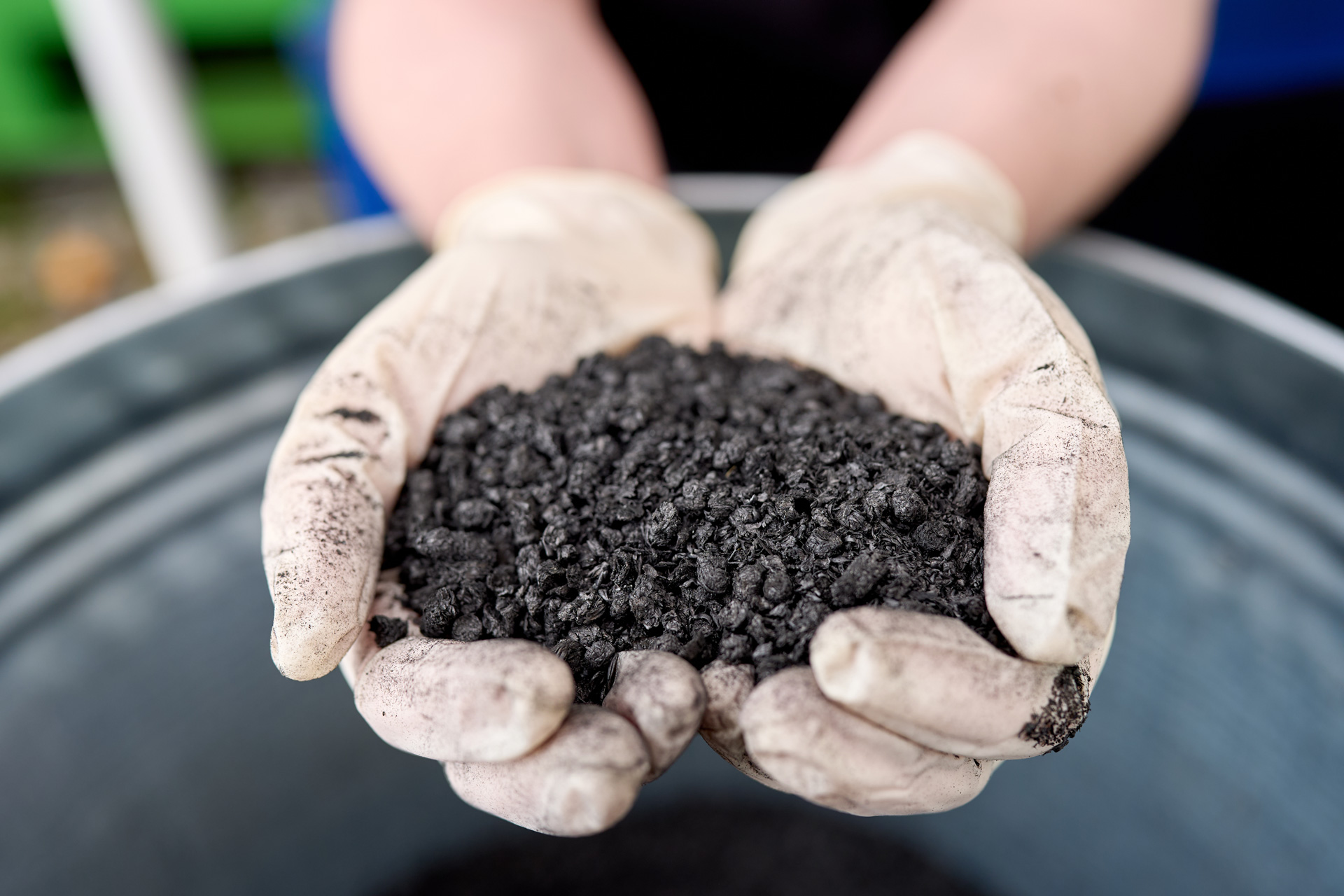Through cutting-edge pyrolysis technology and cross-sector collaboration, the Biochar CleanTech Accelerator is transforming organic waste into high-value bioproducts and new materials, driving decarbonisation, boosting regional innovation and opening new markets for sustainable low-carbon technologies.
The Biochar CleanTech Accelerator, led by Aston University’s Energy & Bioproducts Research Institute (EBRI), is a flagship initiative of the West Midlands Innovation Accelerator. It pioneers clean technology solutions that transform organic materials such as sawdust, agricultural straw, dried chicken manure and diseased or fallen trees into commercially valuable bioproducts including biochar, heat, power, electricity, cooling, gas, organics and aqueous liquids.
With a mission to create a sustainable low-carbon economy, the accelerator focuses on commercialising innovative pyrolysis technologies to unlock new value streams from biomass and support environmental regeneration and green growth.
Inspiration
The Biochar CleanTech Accelerator was established to address major environmental and industrial challenges:
- Develop low-carbon products such as fuels, soil conditioners, water and odour treatment solutions, building materials, and plant-based bioliquids
- Reduce dependency on fossil fuels by turning sustainable organic waste into useful, low-carbon alternatives
- Support circular economy models through carbon capture, emissions reduction and by generating new bio-based products and materials from waste
Innovation and Impact
The Biochar CleanTech Accelerator is delivering environmental and economic benefits across the West Midlands and beyond:
- £1.21 million in co-investment secured to date
- 34 companies supported with tailored business assistance, commercialisation guidance and access to R&D facilities
- Targeting over £200 million in commercial orders for low-carbon products
The project is a catalyst for the development of a high-capacity low-carbon engineering cluster, generating job creation opportunities and offering a launchpad for future technology-based innovation.
An external impact assessment indicates that if the commercial opportunities develop as planned there will be a GVA increase of £32 for every £1 of public money spent, with the creation of 500 jobs.
The Technology
At the heart of the initiative lies advanced pyrolysis technology, capable of converting biomass into multiple high-value outputs:
- Biochar for carbon capture, soil enhancement, water and air filtration and construction materials
- Bioliquids for natural plant growth stimulants and vinegar-based weed control
- Chemical feedstocks for industry
- Low-carbon gases to replace fossil fuels and generate energy
The technology presents a nature-based solution for sustainable development, reducing emissions while creating economic value from organic waste streams.
Core Workstreams
- Research and Development: Exploring the integration of biochar in industrial, agricultural, construction, and environmental applications, including soil health, carbon sequestration and pollution reduction.
- Business Support and Commercialisation: Empowering businesses to develop, scale and market sustainable biochar and pyrolysis products-based technologies.
- Skills and Knowledge Transfer: Providing training, placements and upskilling opportunities to grow regional capabilities in cleantech innovation.
- Collaborative Partnerships: Building a strong regional innovation ecosystem through partnerships across academia, industry and the public sector.
Example Case Studies of Innovation
Greening the Construction Industry with Miles Macadam
UK construction firm Miles Macadam is exploring the incorporation of biochar into road and building composites. The use of biochar-infused materials not only enhances performance but also sequesters carbon in long-lived infrastructure—helping to cut industry emissions while improving material resilience.
FuturEnergy
By converting organic waste into biochar and other materials, FuturEnergy has demonstrated a commercially scalable solution for both climate change and circular economy goals. Their system converts organic waste—such as sawdust, diseased trees, and agricultural residues into biochar, gases, and bioliquids. These outputs serve multiple purposes: biochar enhances soil health and sequesters carbon, gases can be used as low-carbon fuels, and bioliquids function as eco-friendly weedkillers and plant growth enhancers. FuturEnergy is critically positioned to support local supply chains, create green jobs, and foster commercial collaboration between industry and academia. Its success highlights the region’s leadership in clean energy innovation and its commitment to net-zero ambitions.
Conclusion
The Biochar CleanTech Accelerator is positioning the West Midlands as a national and international leader in low-carbon innovation. By combining advanced technology with business support and regional collaboration, the initiative is unlocking new opportunities for sustainable economic growth, manufacturing renewal and environmental regeneration.


